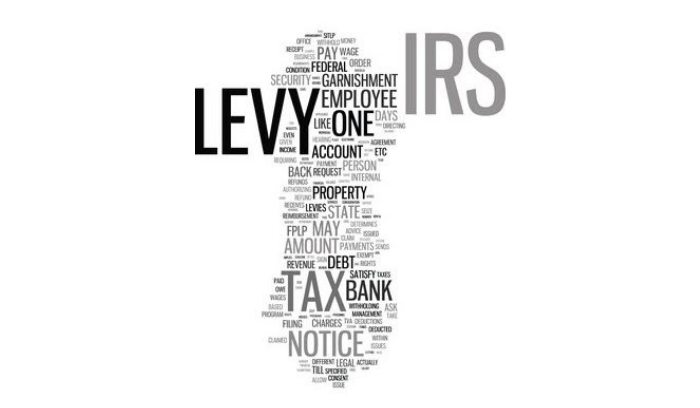
Table of Contents
Dealing with the IRS about back taxes can be tricky although there is always a way out when you decide to take immediate action. The IRS has the authority to take money from your bank account in respect of outstanding taxes but avoids taking such strict actions unless you haven’t made any effort to resolve the tax issues and tax debt case. The IRS only resorts to aggressive tax collection actions when it does not receive any reply to multiple notices asking a taxpayer to get in touch. If you don’t respond, the IRS can levy and garnish money from your bank account to compensate for the taxes you owe. Continuing further, in this blog post, we discuss how taxpayers can resolve IRS bank levies. Read on!
What is a Levy?
A levy is the legal seizure of a taxpayer’s assets or property by the IRS to compensate for tax debt. The IRS has the authority to seize or sell the property of the taxpayer in the event that they fail to pay their taxes. Uncle Sam can also levy property that belongs to the taxpayer but is held by other entities such as bank accounts, dividends, wages, rental income, and accounts receivables. There are more chances that the IRS will garnish wages or levy taxpayer’s bank accounts than selling or seizing their physical property such as a house. Levying property is the last resort as it is not a cost-effective option for the IRS.
Related Blog: Answering 5 FAQs about the IRS Bank Levy Process
Generally, the IRS makes certain attempts to collect late taxes before placing a levy. If it is not successful collecting, it will send multiple notices to the concerned taxpayers discussing its intention to levy. After the ‘Final Notice of Intent to Levy and Notice of Your Right to A Hearing,’ the IRS can levy taxpayer property if they fail to resolve the debt within 30 days.
The Bank Response
When the IRS decides to place a levy, it contacts the bank and asks it to hold the funds in the account of the taxpayer for 21 days so that it can resolve ownership issues about the bank account. The amount in the bank gets frozen, which means that taxpayers won’t be able to access it. If there is no conflict in the ownership after 21 days, the bank sends the funds to the IRS. In such cases, taxpayers should immediately seek tax lien assistance from an experienced tax lien attorney who can negotiate with the IRS and explore avenues such as asking for more time to pay the taxes.
Related Blog: How to Get Assistance Regarding a Tax Lien
Don’t Let IRS Tax Problems Keep You Up at Night
Speak with an experienced tax attorney and take the first step toward peace of mind.
What can Taxpayers do?
After receiving the notice of levy from the IRS, taxpayers should make immediate efforts to resolve the issue within 30 days so that the IRS does not have to initiate the levy. If the IRS has frozen your accounts and potentially thrust you into a financial crisis, you should immediately seek tax lien assistance from an experienced tax lien attorney who can prove that the levy would cause you severe financial hardship. A licensed tax professional with experience in dealing with the IRS to get levies lifted will have a better idea of what the IRS considers as hardship and present the case accordingly. They will also be able to claim reimbursement on your behalf if the IRS made a mistake resulting in your bank accounts being levied.
Wrap Up
If the IRS freezes your account or signals the intention to do so, you must contact an experienced attorney who can negotiate a satisfactory resolution to pay the outstanding tax amount in full, fixed installments, or postponing the payment until you are in a better financial situation. To learn more about tax lien assistance, look no further than the tax attorneys at the Law Offices of Nick Nemeth, PLLC. Call (972) 426-2553, or fill out our contact form.


